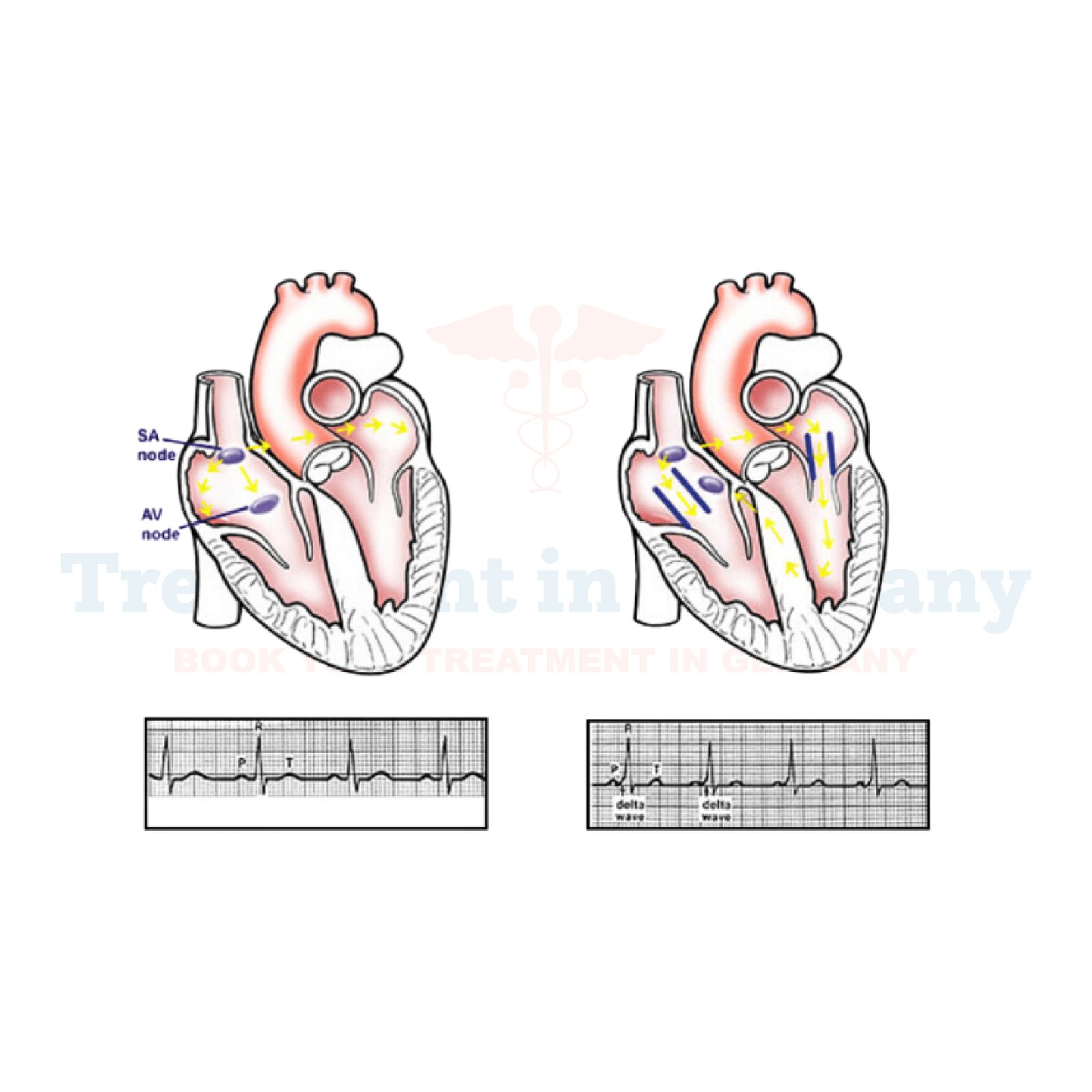Understanding Wolff-Parkinson-White Syndrome (WPW)
Wolff-Parkinson-White Syndrome (WPW) is a relatively rare heart condition characterized by an abnormal extra electrical pathway between the atria and ventricles of the heart.
This additional pathway can cause episodes of rapid heart rate (tachycardia) due to abnormal electrical impulses that bypass the usual route through the atrioventricular node.
Side Effects of Wolff-Parkinson-White Syndrome (WPW)
The primary concern with Wolff-Parkinson-White Syndrome is the risk of episodes of fast heartbeats (tachycardia), which can lead to palpitations, dizziness, shortness of breath, and in severe cases, fainting or cardiac arrest.
These episodes are typically unpredictable and can vary in duration and severity.
Diagnosis of Wolff-Parkinson-White Syndrome (WPW)
Diagnosing Wolff-Parkinson-White Syndrome involves several tests, including:
Potential Treatment of Wolff-Parkinson-White Syndrome (WPW)
Treatment options for Wolff-Parkinson-White Syndrome depend on the severity of symptoms and the risk of complications:
👉 Contact us for further information and receive a complimentary consultation.


.webp)
 (1).webp)

.webp)
 (1).webp)


.webp)
 (1).webp)

.webp)
 (1).webp)
